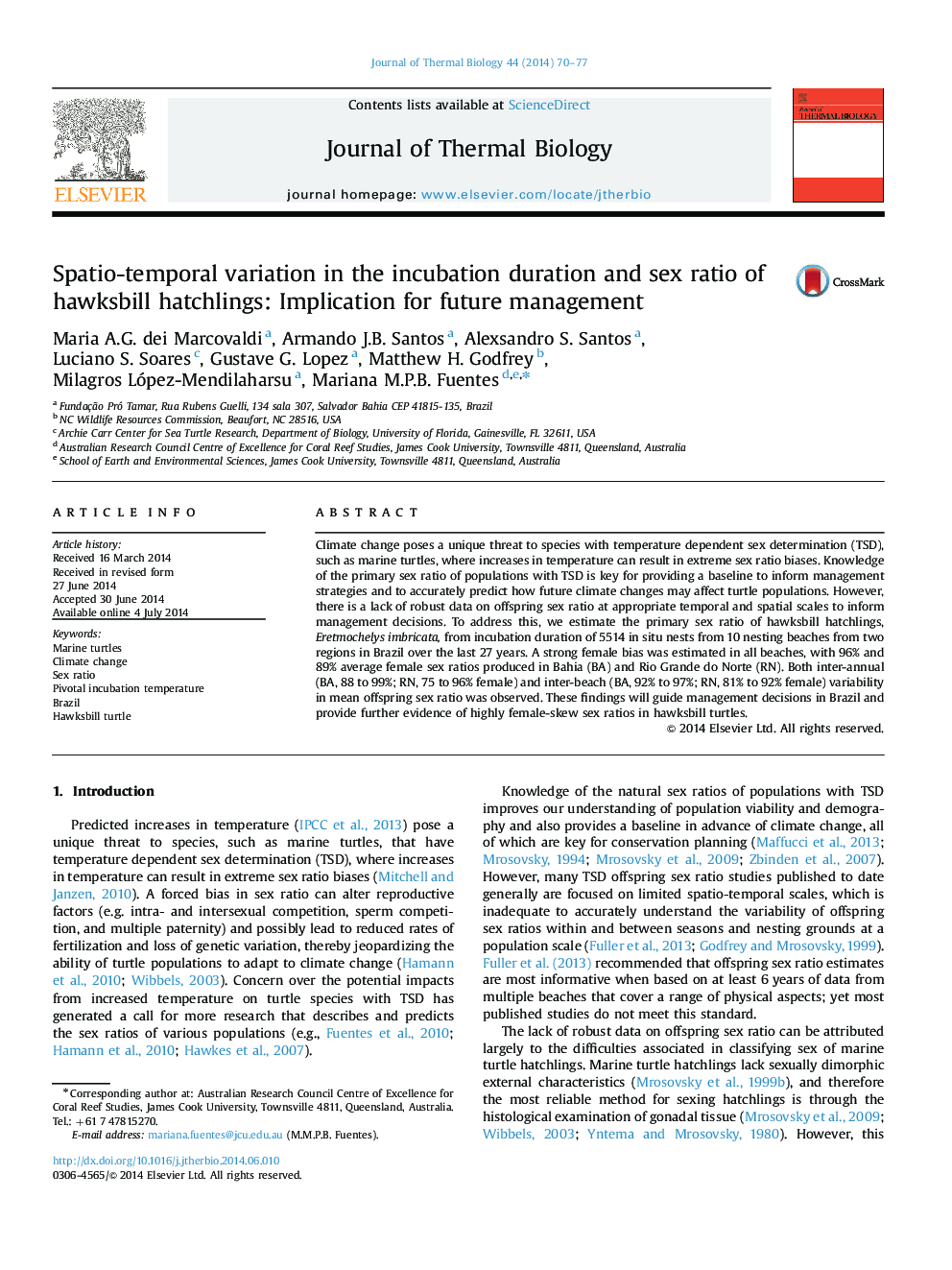| Article ID | Journal | Published Year | Pages | File Type |
|---|---|---|---|---|
| 2842910 | Journal of Thermal Biology | 2014 | 8 Pages |
•A lack of data on marine turtle offspring sex ratio exists.•The primary sex ratio of hawksbill hatchlings was estimated for 5514 nests in Brazil.•A strong female bias was estimated in all 10 beaches (>90%).•Inter-annual and inter-beach variability in mean offspring sex ratio was observed.
Climate change poses a unique threat to species with temperature dependent sex determination (TSD), such as marine turtles, where increases in temperature can result in extreme sex ratio biases. Knowledge of the primary sex ratio of populations with TSD is key for providing a baseline to inform management strategies and to accurately predict how future climate changes may affect turtle populations. However, there is a lack of robust data on offspring sex ratio at appropriate temporal and spatial scales to inform management decisions. To address this, we estimate the primary sex ratio of hawksbill hatchlings, Eretmochelys imbricata, from incubation duration of 5514 in situ nests from 10 nesting beaches from two regions in Brazil over the last 27 years. A strong female bias was estimated in all beaches, with 96% and 89% average female sex ratios produced in Bahia (BA) and Rio Grande do Norte (RN). Both inter-annual (BA, 88 to 99%; RN, 75 to 96% female) and inter-beach (BA, 92% to 97%; RN, 81% to 92% female) variability in mean offspring sex ratio was observed. These findings will guide management decisions in Brazil and provide further evidence of highly female-skew sex ratios in hawksbill turtles.
